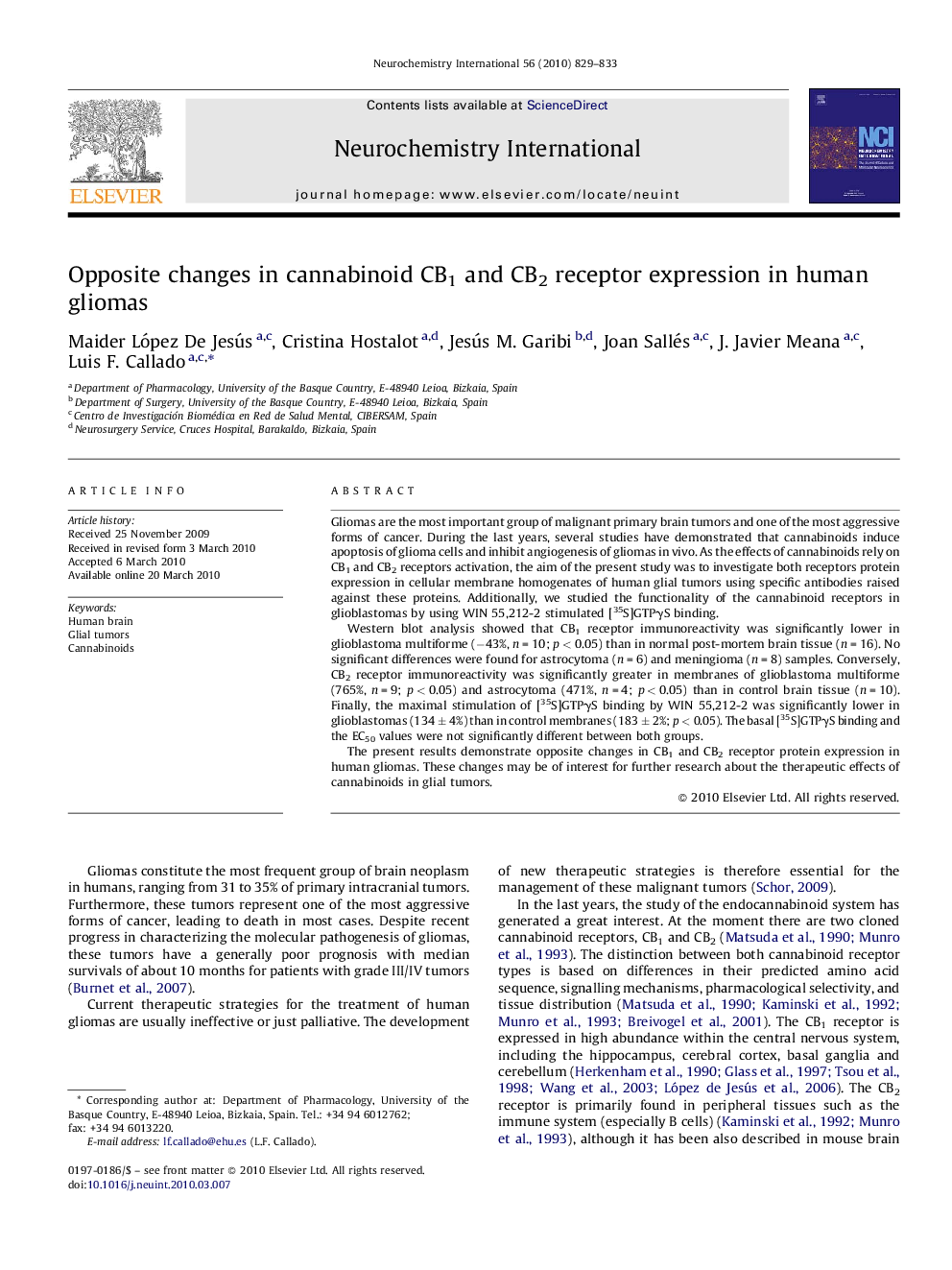| Article ID | Journal | Published Year | Pages | File Type |
|---|---|---|---|---|
| 2201454 | Neurochemistry International | 2010 | 5 Pages |
Gliomas are the most important group of malignant primary brain tumors and one of the most aggressive forms of cancer. During the last years, several studies have demonstrated that cannabinoids induce apoptosis of glioma cells and inhibit angiogenesis of gliomas in vivo. As the effects of cannabinoids rely on CB1 and CB2 receptors activation, the aim of the present study was to investigate both receptors protein expression in cellular membrane homogenates of human glial tumors using specific antibodies raised against these proteins. Additionally, we studied the functionality of the cannabinoid receptors in glioblastomas by using WIN 55,212-2 stimulated [35S]GTPγS binding.Western blot analysis showed that CB1 receptor immunoreactivity was significantly lower in glioblastoma multiforme (−43%, n = 10; p < 0.05) than in normal post-mortem brain tissue (n = 16). No significant differences were found for astrocytoma (n = 6) and meningioma (n = 8) samples. Conversely, CB2 receptor immunoreactivity was significantly greater in membranes of glioblastoma multiforme (765%, n = 9; p < 0.05) and astrocytoma (471%, n = 4; p < 0.05) than in control brain tissue (n = 10). Finally, the maximal stimulation of [35S]GTPγS binding by WIN 55,212-2 was significantly lower in glioblastomas (134 ± 4%) than in control membranes (183 ± 2%; p < 0.05). The basal [35S]GTPγS binding and the EC50 values were not significantly different between both groups.The present results demonstrate opposite changes in CB1 and CB2 receptor protein expression in human gliomas. These changes may be of interest for further research about the therapeutic effects of cannabinoids in glial tumors.
